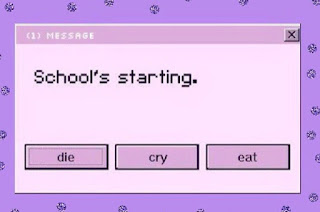(Hint: It's super easy!)
Hey everyone and welcome back!
When we think of the term "Ally", many of us often have a stereotypical picture of someone aggressive/bold, holding huge posters, marching on the street in the back of our minds.
While this is true for a few cases, sometimes, being an ally doesn't mean doing all the above; rather just taking a few measures yourself to make the world a better, a more inclusive space.
So, in today's post, I'll be sharing 3 (super easy) ways you can be a Mental Health ally-for free!
Being an ally and making jokes about Mental Health is one of the most hypocritic things you can ever do.
Don't get me wrong, there's absolutely nothing wrong about speaking about your own mental health with a bit of humour but when you choose to say terms such as "
Bro, depression ho gaya", you're indirectly contributing to the stigma.
Mental Health is not something to be joked about.It's an extremely serious topic and you should sensitise yourself with it's usage and avoid misusing it.
And of course, goes without saying, don't tease someone struggling with their mental health. It's hard living with one and you should support them rather than ridicule.
No one's saying you need to stand on the table with a loudspeaker and scream your advocacy.
"Talking about it", simply means to engage in conversations about it and not shun anyone who tries to open up.
"Talking about it" means to use your resources, volunteering and putting forth your voice for the field!
"Talking about it" means to promote posts on your social media.
"Talking about it" means supporting your peers who work in this field (aka me: please follow and share my blog haha!)
Educate yourself, and then spread that knowledge to reduce the taboo.
And this applies to scenarios even when the other person does not suffer from a critical condition.
The smallest step you can take is simply listening to that person when they're opening up to you.
Don't question it, don't interrupt them, don't "Oh something similar happened to me.." and trail off with your own story.
They're saying it to you because they are trusting you with it.
Be a good person and hear them out first.
And sure, you might have questions about what they're talking on; but ask them if they're comfortable giving an answer to it. Don't force it on them and maintain boundaries.
If they're looking for advice, don't dwell on your story, rather explain why your situations are similar and talk about it with respect to them i.e. what they should do in that situation.
That was it for today's post. Drop in a few ways you like to advocate!
Don't forget to share and subscribe for more content, every Friday <3
Signing off,
Kuhu :)








blog day is my favourite day fr
ReplyDelete:) <3
Delete